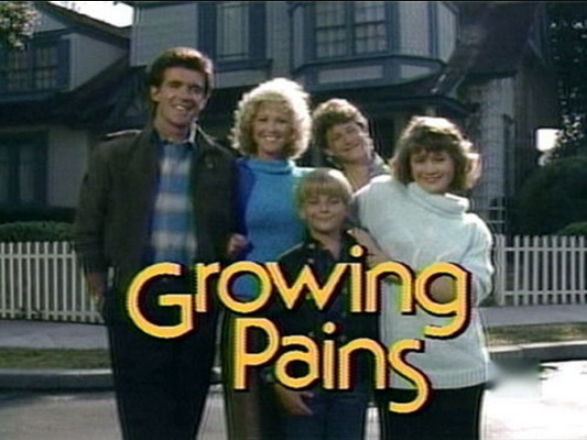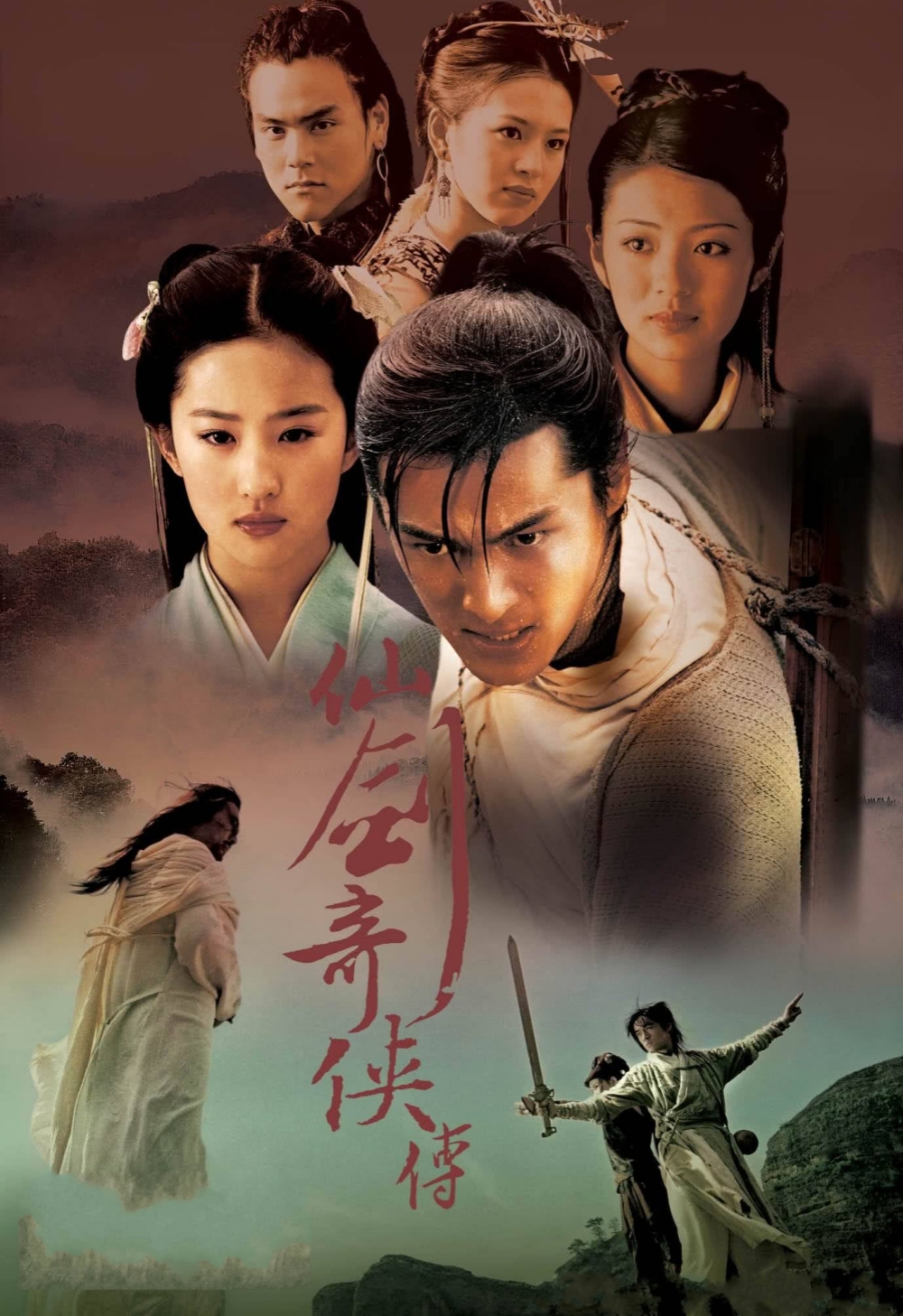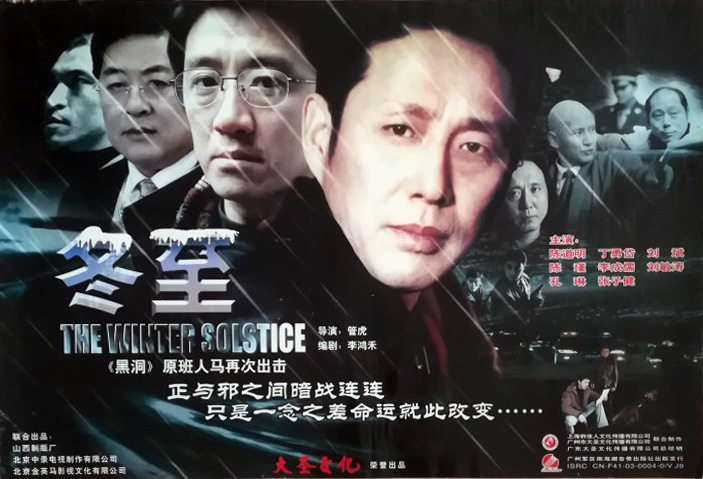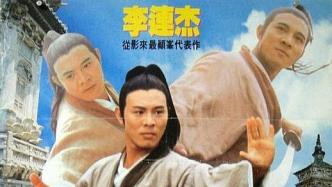
Editor's note: This is a nostalgic theater.
In 1992, after Jet Li successfully filmed three "Once Upon a Time" films with Golden Harvest, he had an unpleasant experience with his former employer due to the agency contract. His new agent, Cai Ziming, was killed by a mysterious gunman, and his originally bright prospects suddenly turned gloomy. . Against this background, Jet Li established his own "Zhengdong" production company, determined to be his own boss, no longer an actor to be manipulated by others, and vowed to control his destiny in his own hands.
Cheng Tung went on to produce five kung fu films starring Jet Li. The two kung fu comedies "Fong Shi Yu" both successfully ranked among the top ten in the Hong Kong box office rankings in 1993. The subsequent "Tai Chi Zhang Sanfeng", although the local box office in Hong Kong was only 12.54 million Hong Kong dollars, it sold 14.05 million US dollars at the box office across Asia, and also made a lot of commercial income. Jet Li has thus transformed from a "novice producer" in the eyes of everyone to a real "Kung Fu Emperor" in the film market.

"Tai Chi Zhang Sanfeng" poster
It is said that Jet Li was inspired by his boss in Taiwan for the film "Tai Chi Sam Feng". He thought that if "Sam Feng" became famous, the film would definitely make a profit, so he invited the famous martial arts director Yuan Heping to direct, starring himself and Michelle Yeoh.
From the perspective of the team, the combination of two standard practitioners, Yuan Baye and Jet Li, is the top pairing of the action team. The creative process was mostly hard work. Everyone worked hard on the action design together. Every move in the performance was of a very high standard. The scene must be innovative, solid and heavy, and it is not an ordinary martial arts routine.
This film does not have complex themes and national sentiments like "Once Upon a Time", nor is it a Jianghu legend that combines various comedy elements like "Fang Shiyu" or "Yi Tian Tu Long Ji", but the bright and smooth writing and drama, combined with a The innovative action design gives the film the "simple beauty" that a kung fu film should have. It is a good commercial film that can relax you after reading it and watch it again and again.
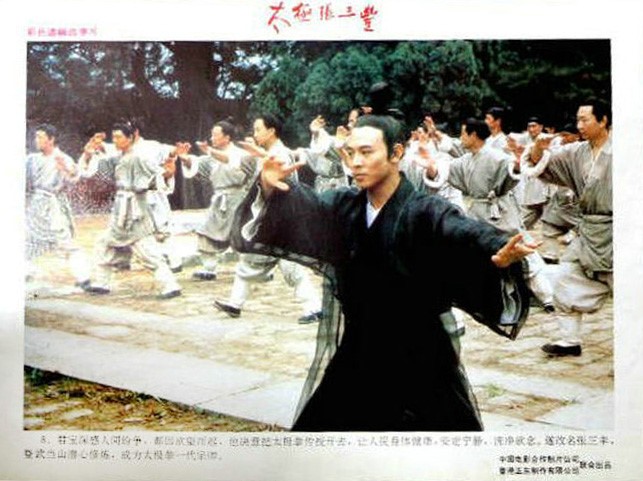
In some scenes of the film, hundreds of sturdy extras practice martial arts with Jet Li. I guess they were inspired by Tsui Hark's version of "Once Upon a Time", but it is still a very shocking Kung Fu culture.
Some of the military training scenes in the military camp featured at least a hundred well-built group performers fighting together, which was quite impressive. Although it "seems simple", it is actually a far from easy scenario to achieve in the film industry, and it is even less possible now.
This film also occupies a place among the 19 greatest kung fu films in film history selected by American Entertainment Magazine in 2008. Although excluding one "The Matrix", the other 18 are Hong Kong action films, but it also shows that this film is still quite accomplished in action scenes among the many Hong Kong films with strong competitors.



The martial arts training scenes in this film have a large number of people and are memorable.
The beauty of martial arts movements is like the beauty of acrobatics. The more experienced you are, the more difficult it is to realize it. Otherwise, other than an exclamation of "wow", you can't comment too much about it. The action design of this film has at least three major scenes that are extremely impressive. Here are a few hints.
The first scene is the scene where the two brothers Junbao and Tianbao fight against the stick monk of Shaolin Temple. Among them, sticks are flying all over the sky, the monks are designed to build ladders, and finally they are sliding on the ground while stepping on people. People can't help but marvel at the complex acrobatic skills of martial arts. In the end, the protagonist spread oil on the ground, preventing the enemy from setting up stakes on the ground and successfully escaped. Although this design had just been used in "Once Upon a Time in the Lion King" in 1992, this film has more people fighting and the scenes feel more upgraded.

A fight between warrior monks is the essence of traditional Shaw Brothers films and has a sense of inheritance.
The second location is in the military camp. Ten people including Jet Li fight against more than a hundred soldiers. Everyone is surrounded. There are details of the fight and a majestic momentum. It is amazing how difficult the overall shooting is.
The third part is the decisive battle between the two brothers Junbao and Tianbao at the end. At this time, Junbao "Zhang Sanfeng" had created his own Tai Chi. In order to highlight the soft characteristics of Tai Chi Kung Fu, a fight between good and evil was specially carried out on a set of rope ladders. In "Once Upon a Time" directed by Yuan Woo-Ping in the same year, he designed a fight between Donnie Yen and Simon Yam on a burning wooden stake, which amazed the American and other foreign audiences at the danger involved. As for fighting on a rope ladder, most people cannot stand firmly, let alone perform movements. It is also a scene that is unimaginable for the audience.

Fighting in a variety of complex environments is the best platform to reflect the character's kung fu.
In addition to the innovation of the action scenes, what makes the film enduring and can still be understood even 30 years later is the character change of the villain Tianbao. This is a "good brother from Shaolin Temple" specially designed to correspond with the protagonist Jun Bao.
Different from the life path of the protagonist who finally drifted away from the world and became a great master, Tianbao was an ambitious man who had great pursuits in the world. He used ruthless methods and died tragically in the end. For screenwriter Ye Guangjian, I am afraid that such a villain, the character's own evil, some sympathetic factors, and the fate of good and evil in the end, should not cause too much controversy among the audience. Just like the screenwriter later wrote "Fist of Heroes", the character's direction of good or evil in terms of national stance is very clear.
However, 30 years later, Tianbao's image has triggered a deeper understanding among the audience. Some people even wrote such remarks as "Junbao is an ideal, Tianbao is a reality." It must be said that with the development of the times, the living conditions and mentality of ordinary people have undergone many changes. The characters in literary and artistic works in the past were always black and white. If you look at them today, you can actually see that their lives are more difficult, and they have become a difficult survival choice in reality. This change in social culture and values triggers different perceptions, but it is a more interesting social phenomenon outside of the film.
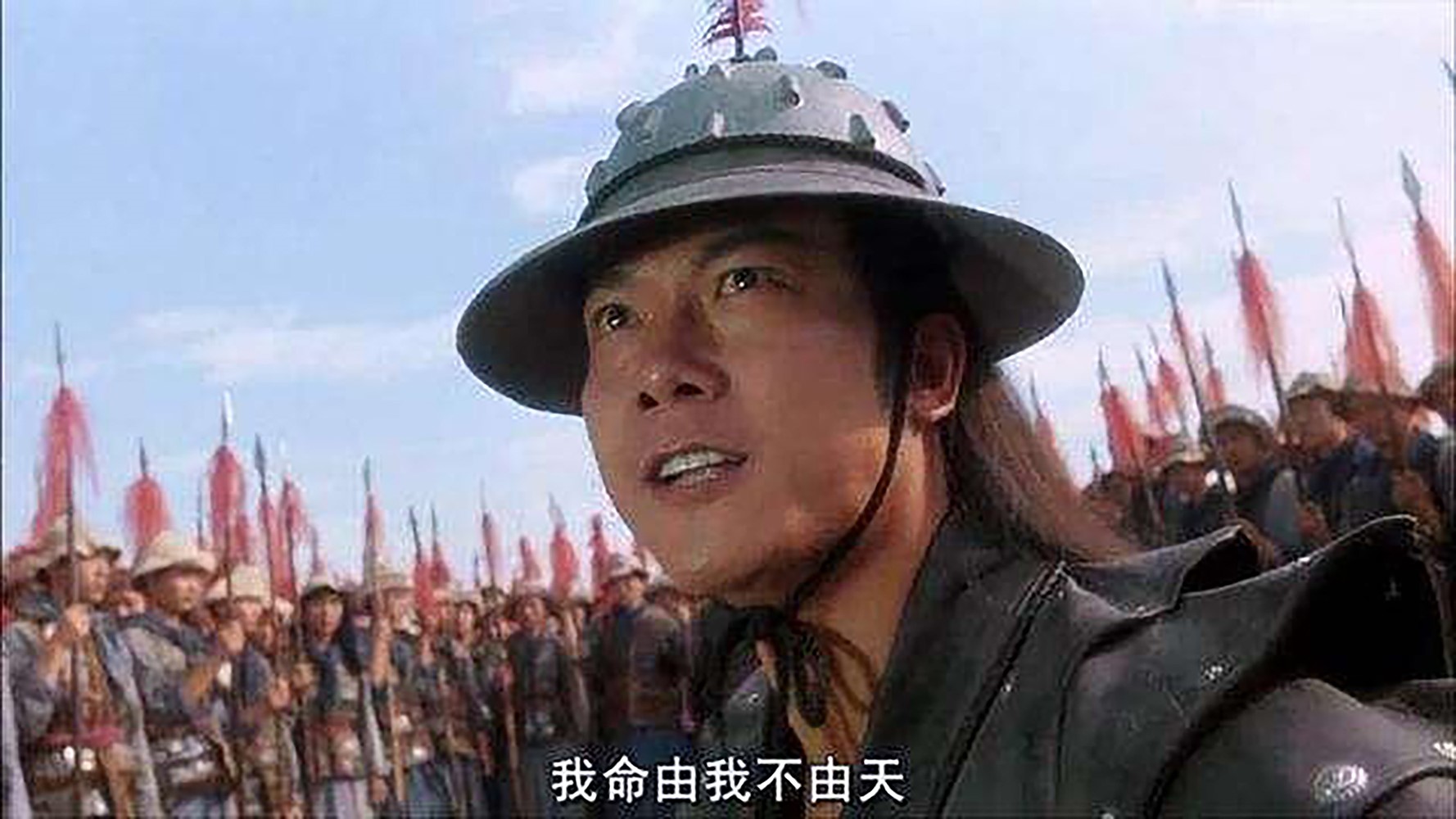
The villains in Lao Hong Kong films are often eloquent, ambitious, and quite heroic. If you just want to climb high, you will often fall miserably in the end.
Tianbao is an ambitious martial artist. In order to seek fame, he takes action every time he sees an opportunity. His actions will always hurt others. At the critical moment, he even betrayed his good brother Junbao and killed his beloved girl with one slap. In order to add some weight to "success". In the system of old Hong Kong dramas, such a character should have been a standard villain. He has lost his good nature and is an object of contempt for the protagonist and the audience.
However, there are many factors in Tianbao's choices that can make the audience understand and sympathize. He was expelled from the Shaolin Temple because his mentor failed in the power struggle. He and his good brothers became the targets of "genuine Shaolin disciples" and encountered various injustices and suppressions. When he first entered society, he wanted to rely on his brute force to show off. He made money in various ways, but was insulted and robbed by corrupt officials and did not even have the most basic living security. He put down his dignity and relied on flattery to enter the military camp. He thought this was a place where he could be ranked according to his martial arts skills, but he found that there were still You have to talk about seniority and "merit", but your strength is still not appreciated by your boss.
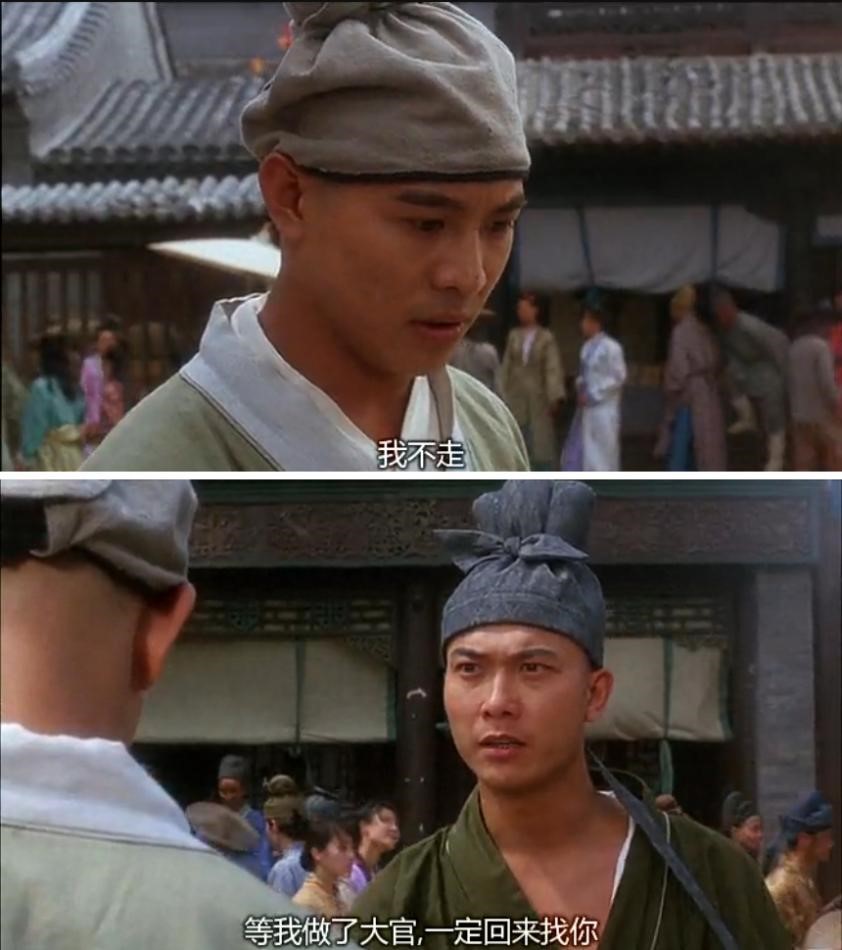
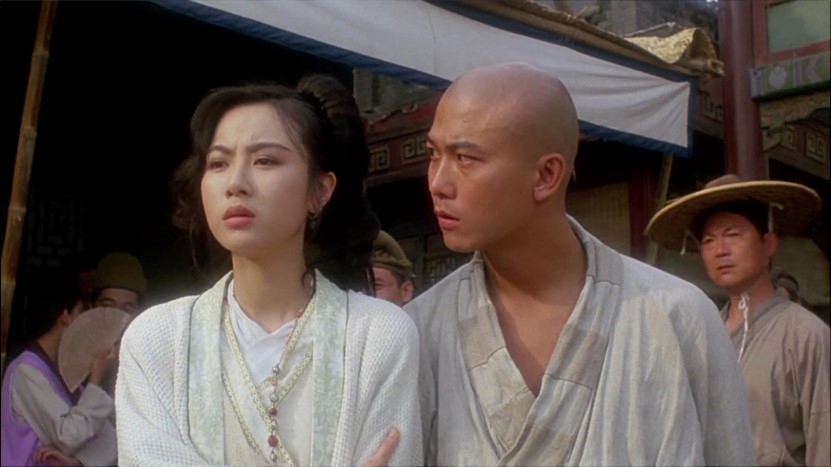
Tianbao was once an aspiring young man who valued love and justice, but his future transformation will make people even more heartbroken.
What can you do if you are a very high-level and motivated little person who can even give up your self-esteem, but you find that there is still no hope of promotion? Although he said, "My fate is up to me," in fact, I was being teased by fate at every step, and I had no choice at all. These plots made the audience in front of the TV sit on pins and needles, wondering if they were a reflection of their own success or failure.
Compared with the legend of Junbao, who was crazy and dedicated to good, and finally became a great master, Tianbao is more like a sad and deplorable experience for ordinary people in life. Like a moth flying into a flame, when I was young, I briefly hoped to stand out and make achievements, but in the end I found that no matter whether I had the strength, gave up my dignity, or even gave up my conscience, I still could only get stuck in the quagmire, and finally ended up like this. A complete failure.
It turns out that struggle is just an illusion.
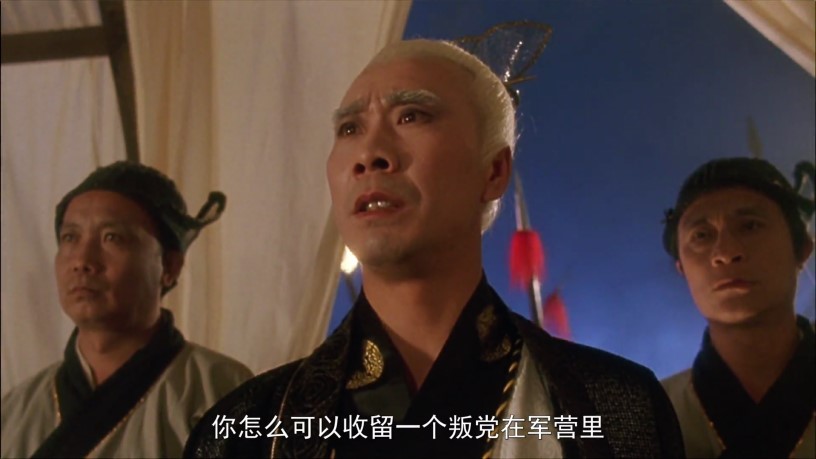
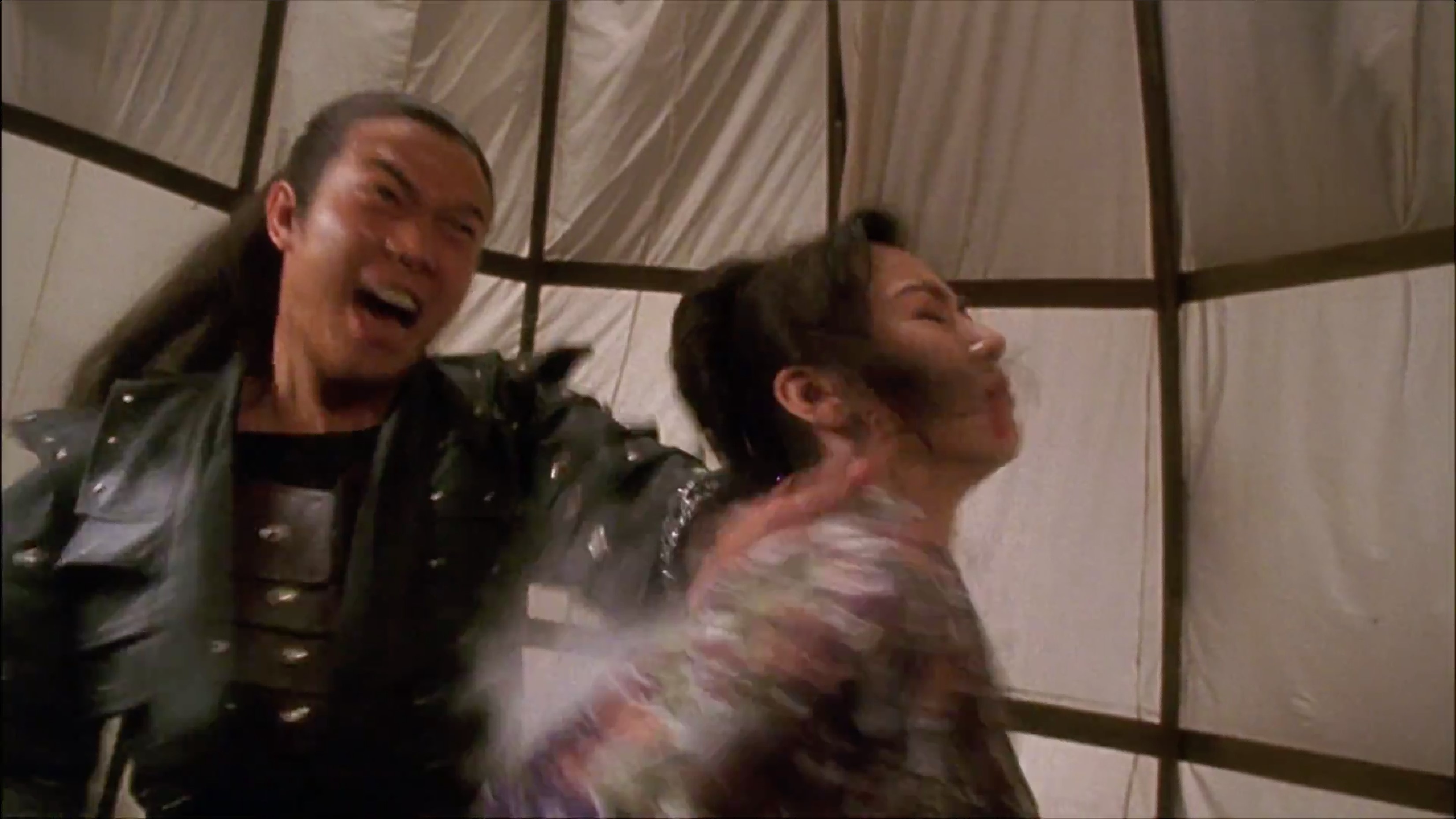
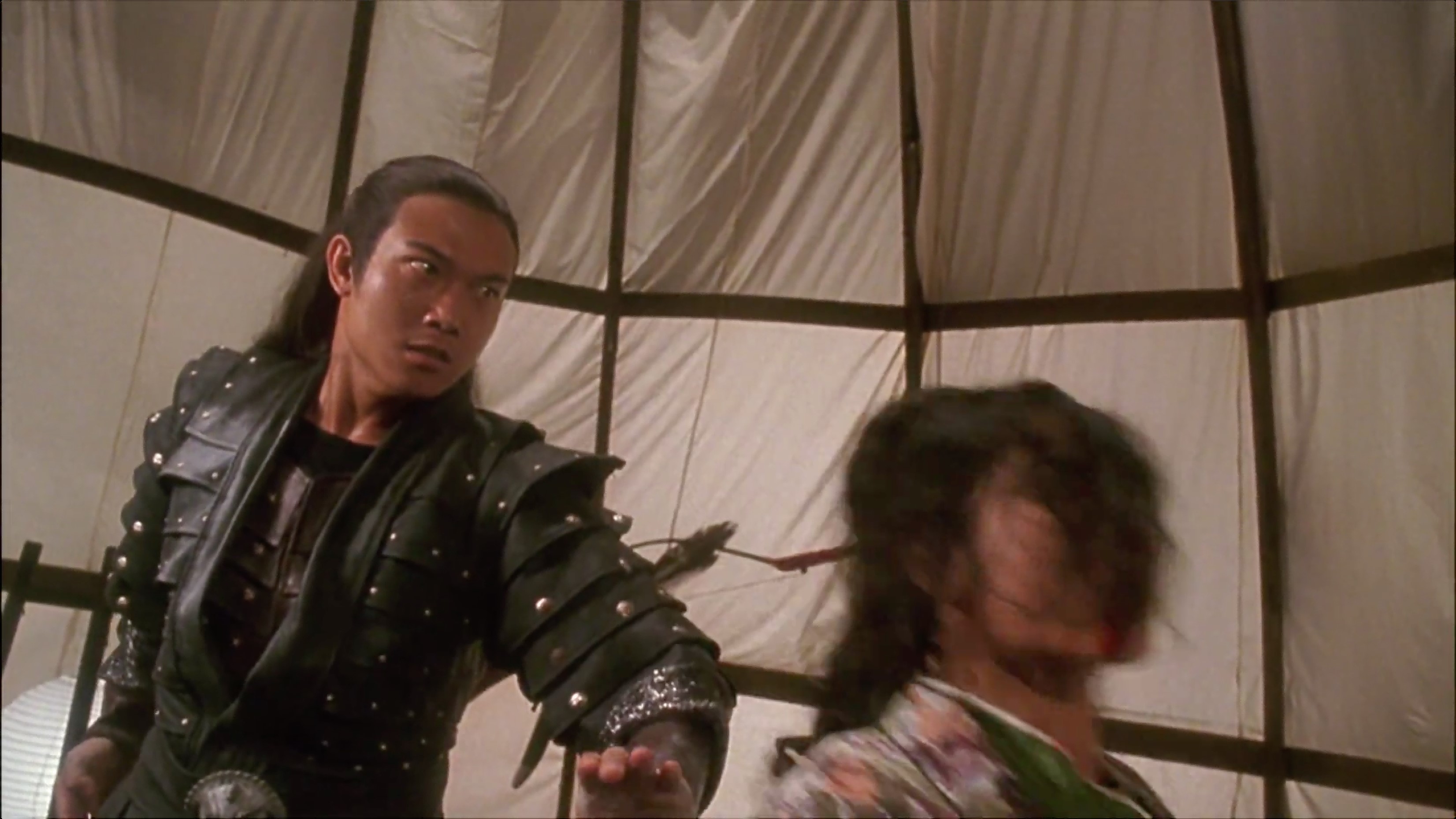
As for Tianbao slapping his beloved girl to death, it is said that actor Qian Xiaohao and director Yuan Heping also discussed this plot. The final decision was made to express the character, which also surprised the audience.
The role of Tianbao played by actor Qian Xiaohao left a deep memory in the audience. Qian Xiaohao was a popular actor at Shaw Brothers in his early years, famous for "Mr. Zombie". Apart from supporting roles in this film and "Fist of Heroes", in recent years he has been active in mainland China and filmed many zombie-themed movies. Although it is far from Jet Li's dazzling stardom, he can still be regarded as accommodating his destiny. Compared with many Hong Kong stars who were once popular and have declined in their later years, his middle-aged and elderly acting career is pretty good.
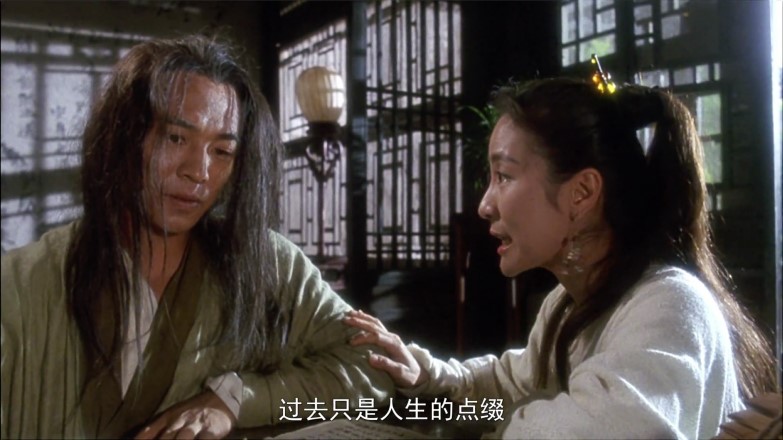
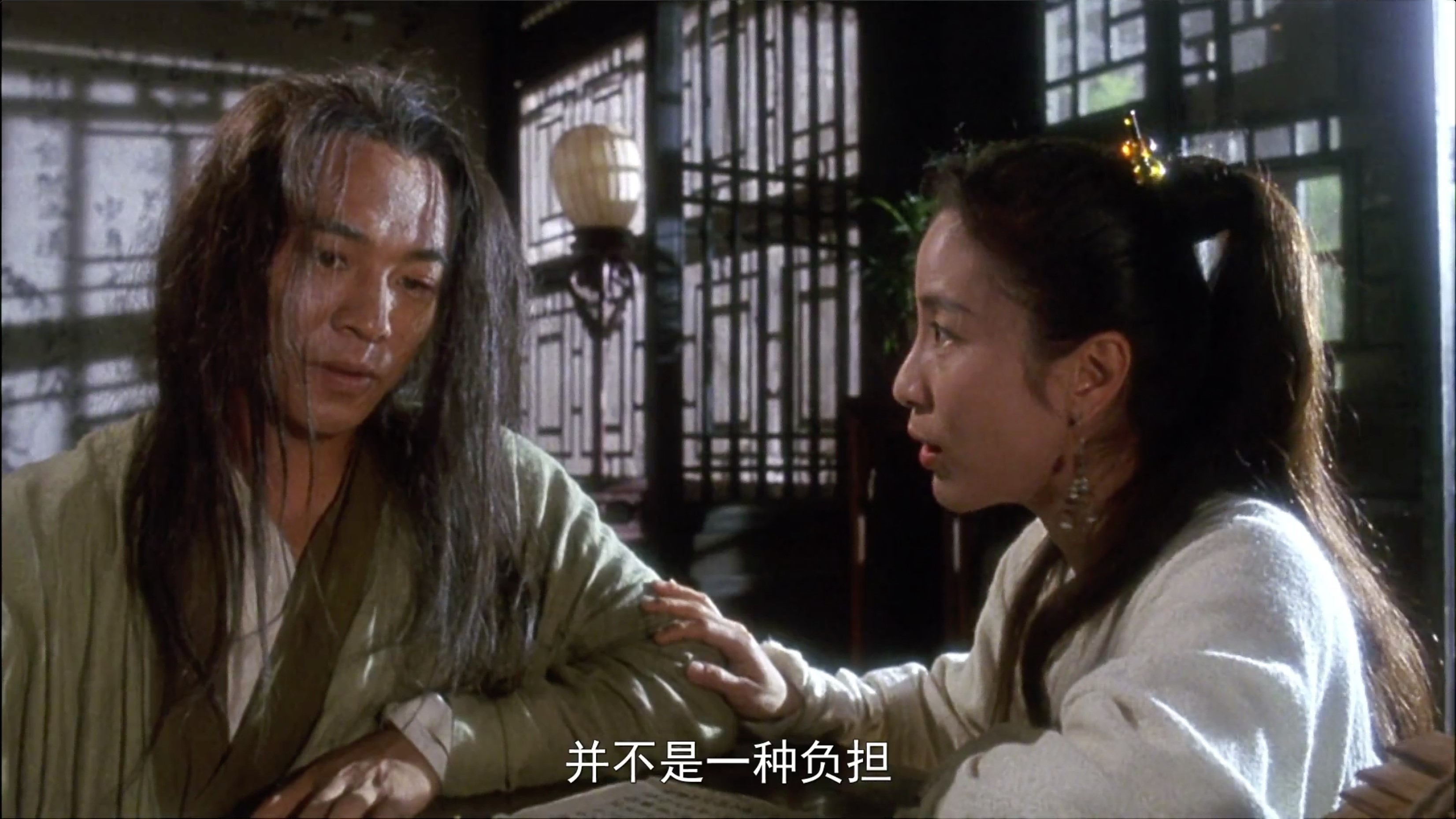
Among the lines that advise people to forget the past, these two are quite philosophical and chewy.
The story of the film is not complicated, but upon closer inspection it contains a philosophy of life full of experience. In addition to Tianbao's lamentable pursuit of life, Junbao also occasionally has enlightening insights, and can experience a more enlightened state after full enlightenment. In the end of the film, although Jun Bao and the female character Qiu Xue in the story, the protagonists played by Jet Li and Michelle Yeoh respectively, seemed to have a relationship, Zhang Sanfeng said casually "Let it go" and suddenly declined. The pursuit of others seems a bit unreasonable and unreasonable.
Of course, "Zhang Sanfeng" was originally a somewhat aloof master. Regarding his change of vision and emotional choices, I am afraid that director Yuan Heping is not the strong point, so this part is handled a little stiffly.

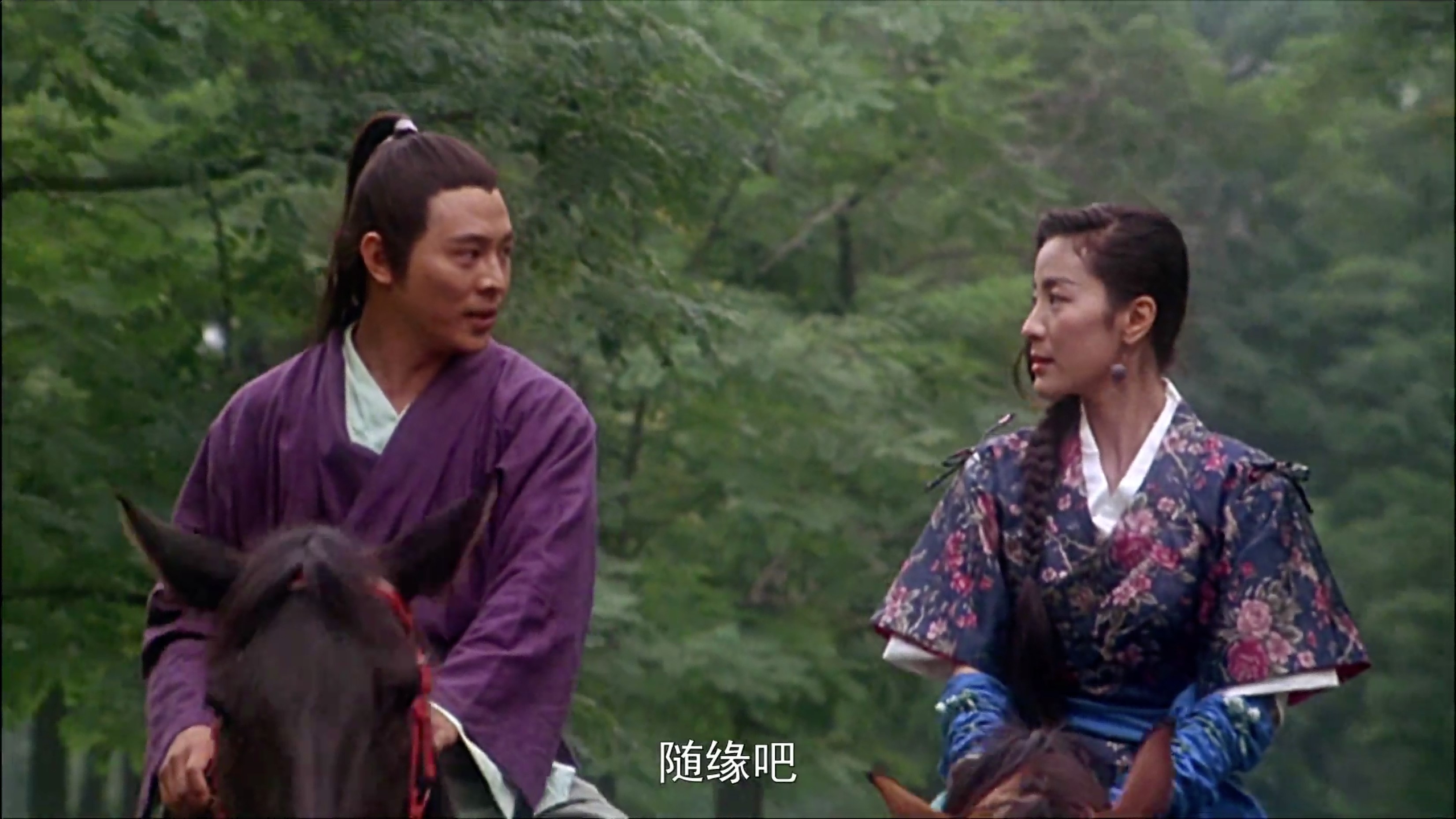
Gains and losses in life, sometimes you need to forget, sometimes you have to remember. Zhang Sanfeng chose to forget everything, which also chilled the girl's heart.
Generally speaking, this film is not good at plot, but the villain's character creation is quite chewy, and the action design is worthy of being first-class. As a kung fu film, it is an overall bright and smooth work. It is also another success that actor Jet Li held his breath and achieved as a producer. It’s worth digging out and enjoying again after many years.
